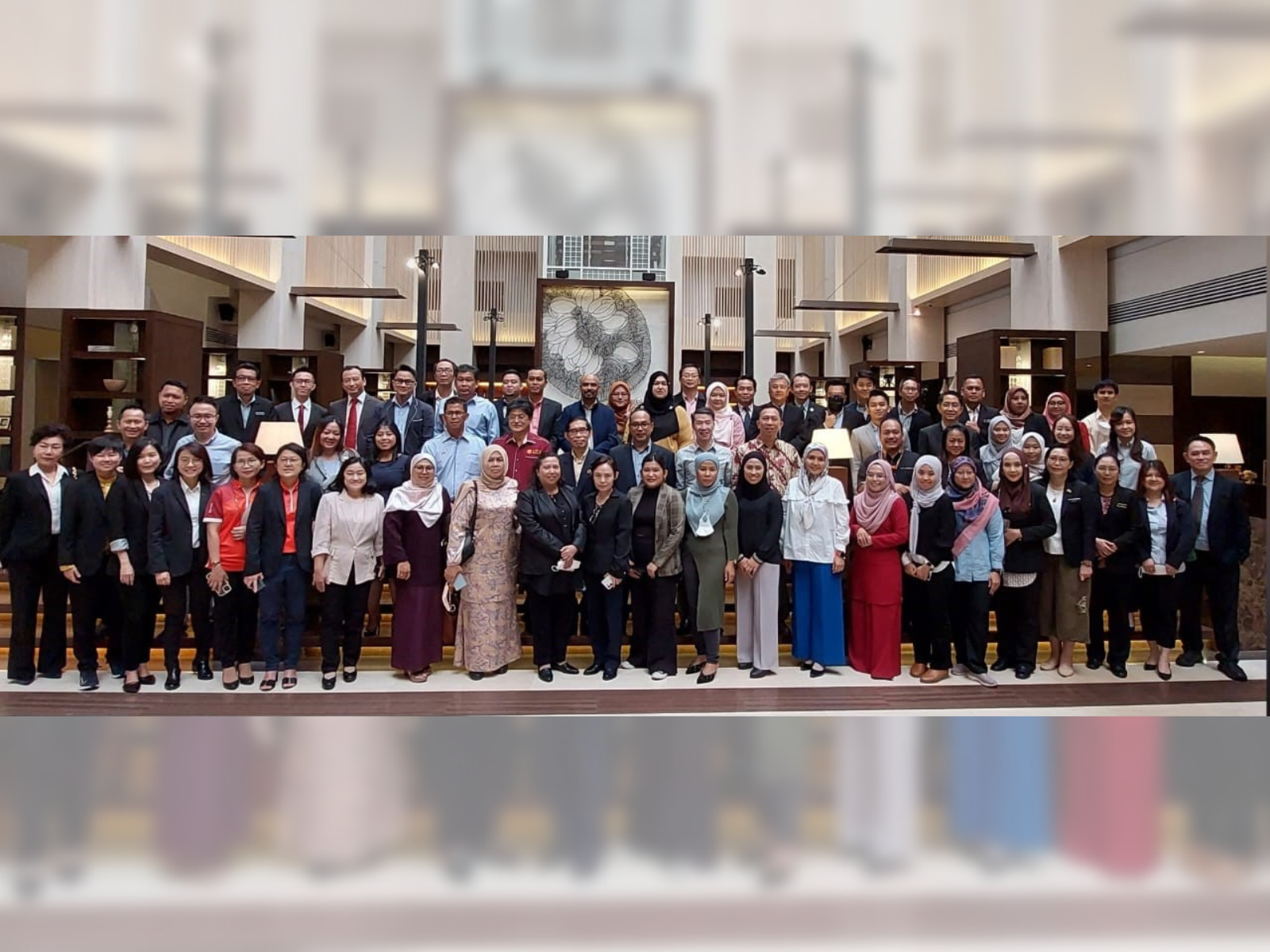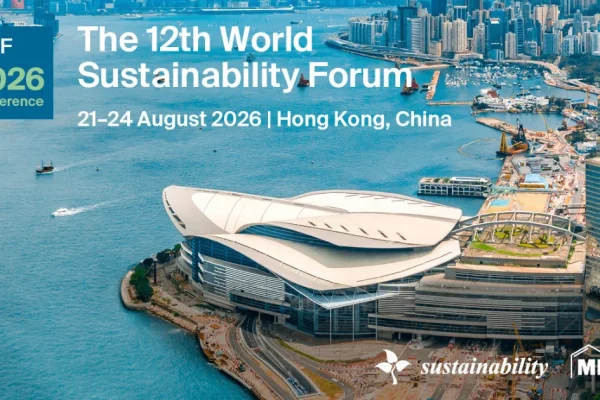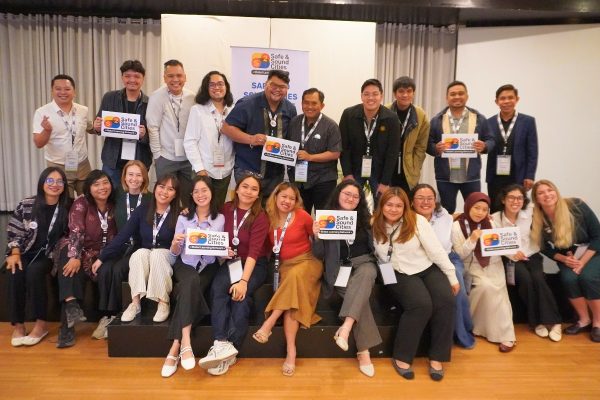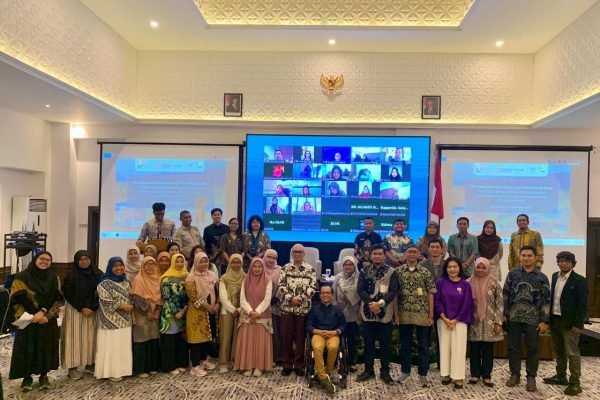Participants of the GCoM National Workshop on Climate Change Mitigation, Adaptation, and Climate Finance on August 15-17, 2022 at Hyatt Regency Kinabalu, Kota Kinabalu, Malaysia. (Credit: Jacqueline Chang)
Over 40 Malaysian local government representatives on 15-17 August 2022 participated in a three-day climate action planning and climate finance training led by the Global Covenant of Mayors for Climate & Energy (GCoM) Asia and the City Government of Kota Kinabalu.
Six new cities—Penang, Sibu (Sarawak), Kulai (Johor), Sandakan (Sabah), Johor Bahru, and Miri (Sarawak)—also joined the growing number of Malaysian cities that have pledged climate leadership and action through the GCoM network.
The new signatories participated in a technical training led by GCoM Asia, the City Government of Kota Kinabalu, and the Universiti Teknologi Malaysia – Low Carbon Asia Research Center (UTM-LCARC) to advance the preparation and implementation of their respective climate action plans in the coming months.
The training series covered topics such as setting baseline greenhouse gas emission inventories, climate risk and vulnerability assessments, climate action plan formulation processes, stakeholder engagement, and climate finance. Representatives from Iskandar Regional Development Authority (IRDA), Iskandar Puteri, Penang Green Council, and Muar also shared their best practices on effective stakeholder engagement for climate action to further inspire innovations and actions from the new GCoM member-cities.
The urgency of the climate crisis compels local governments to immediately transform their plans into actions. Speaking at the climate finance session, Ms. Pamela Cabacungan, Low Emission Development Strategies Manager of ICLEI Southeast Asia Secretariat, shared “Local governments are often faced with challenges such as inadequate funding to implement climate projects, lack of information on where and how to access potential climate finance, and difficulties in translating ideas into bankable and actionable projects.”
As such, Mr. Andy Armansyah, Technical Coordinator of GCoM Asia, encouraged the local governments to utilize project preparation facilities such as the Transformative Actions Program (TAP) and the City Climate Gap Fund.
Diving deeper into TAP, Ms. Cabacungan guided the participants on its eligibility criteria, application processes, services, and practical tips for building stronger infrastructure project proposals.
Additionally, Ms. Norhasliza Mohd Mokhtar, Senior Director of the Climate Action Group at the Malaysian Green Technology Climate Change Corporation (MGTC), encouraged the local governments to tap the agency’s Low-Carbon Cities Catalyst Grant (GeRAK) to implement non-resource-intensive, easy-to-implement climate solutions.
The GeRAK provides up to a maximum of RM 250,000 in funding for the implementation of climate projects by local authorities. To date, MGTC and the Ministry of Finance have approved grant disbursements to 141 local authorities.
Meanwhile, Ms. Sheela Inthiram, Assistant Secretary of the Climate Change Division of the Ministry of Environment and Water (KASA), introduced the Global Environmental Facility (GEF) and Green Climate Fund (GCF) as additional climate action funding streams. As the designated authority of both facilities, KASA reviews local action proposals to ensure that they align with national priorities.
Mr. Arthur Jimos, Director of Corporate Banking Malaysia of the CIMB Group, also touched on sustainable finance, including how CIMB investigates risks and opportunities. Mr. Jimos recognized the role of local governments in mobilizing different stakeholders such as businesses to act against climate change. He reminded that business entities of varying scales can also tap into financing opportunities offered by commercial banks to kickstart the implementation of their climate actions.
The training series concluded with a site visit to Penampang Energy/TONIBUNG facility and the Kota Kinabalu Wetlands.




